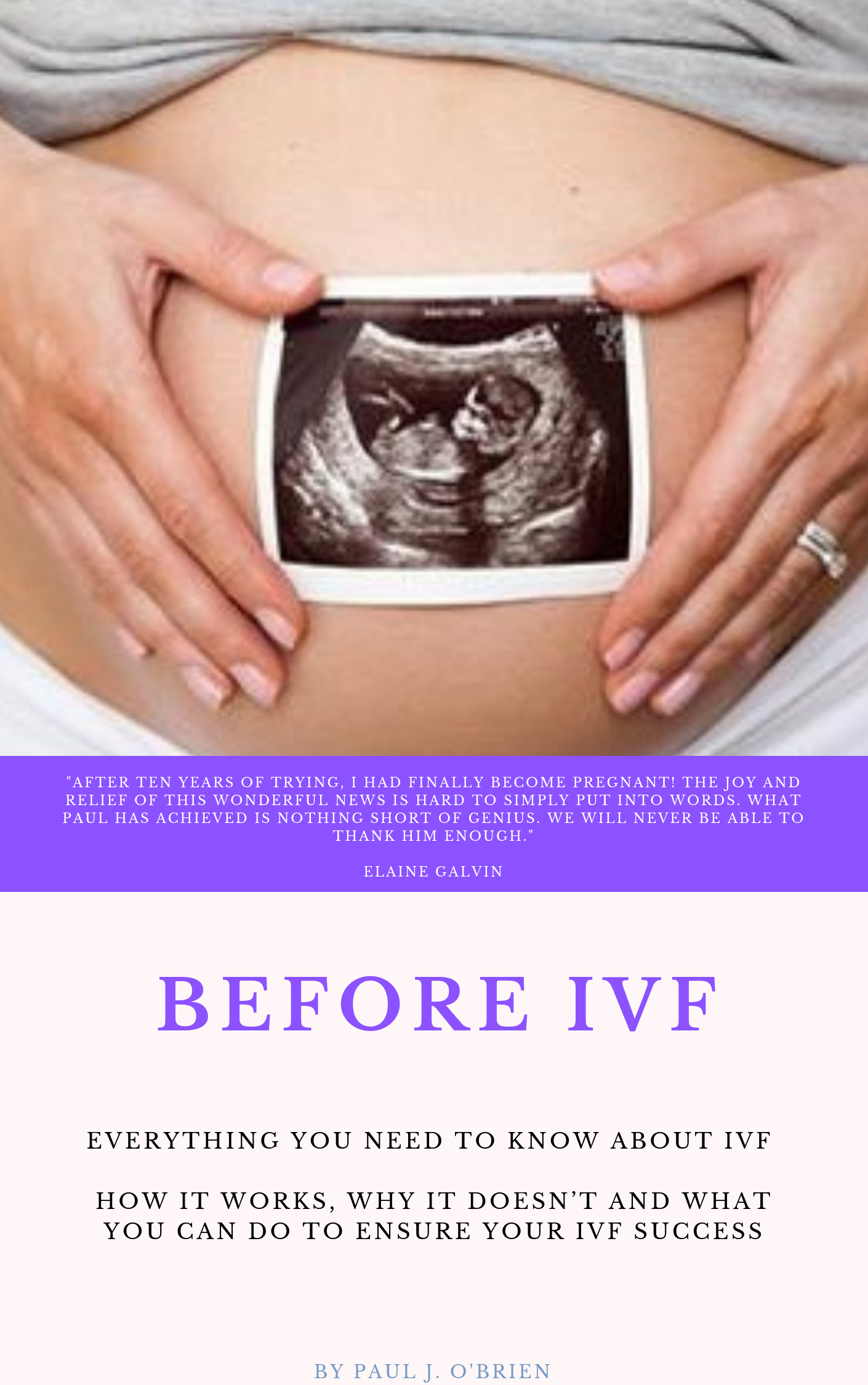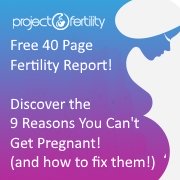What is Hydrosalpinx?
And how do you fix it naturally?
By Paul J.O'Brien B.A., N.C.E.H.S., Dip. Acu., Adv. Dip. OBB, Cert Clin. Med, Cert.CHM, Pn1, PN-SSR, PN-NCA, M.AFPA, M.ETCMA, M.C.Th.A.
Hydrosalpinx is a condition in which fluid builds up in the fallopian tube, often due to blockage. As it has no ability to drain away, this fluid can flood the uterus, washing away fertilized eggs that have been implanted naturally or via IVF.
The actual build of the fluid in the uterine tubes, in the fimbrial end of the tube (the side closest to the ovary) is called Hydrosalpinges.
It is usually detected using a particular type of ultrasound scan done for women undergoing IVF and ART called a Transvaginal Ultrasonography.
In a moment I'll show you to to fix this naturally, but as I say, hydrosalpinx is often caused by a blocked fallopian tube so let's quickly look at that.
Blocked Tubes
Problems with the fallopian tubes account for 14-26% of infertility diagnoses (1) are often resolved by surgery in Western medicine, or bypassed within ART and fall into main categories: Blocked Tubes and Endometriosis.
Blocked Tubes were in fact the primary reason for the development of IVF, as the procedure completely bypasses any issues with the fallopian tubes. In natural pregnancy the fallopian tube is the tunnel through which sperm move up to fertilize the egg and the tube by which the egg moves down to be fertilised. If there is a blockage then it is if difficult if not near impossible to naturally conceive.
Those aware of the mechanics of reproduction will know that there are two ovaries, each with their own tube and they will alternate in the release of an egg - typically one month the left ovary will release and the next month the right ovary will release. And it is rare to have a blockage in both tubes - as such most people, understandably will think that a blocked tube (or lost tube as is sometimes the case in an ectopic pregnancy) will result in diminished fertility, as half the opportunities to conceive are lost. However the problem is more complex, as the blockage of one tube may lead to a build of fluid in fimbrial end of the tube (the side closest to the ovary). That fluid builds having no ability to drain away (our friend hydrosalpinx) and can flood the uterus, washing away fertilized eggs that have been implanted naturally or via IVF.
Now the reasons for such blockages are numerous, and can be the result of adhesions of the tissue, or scarring as a result of inflammation due to infection. This is why it is crucial to deal with STI (sexually transmitted infections) such as Chlamydia or Gonorrhoea as soon as possible. Even a simple yeast infection like thrush can have a devastating impact on the health of the fallopian tubes.
How to Fix Hydrosalpinx and Blocked Tubes Naturally

Incredibly, blockages of the tubes and hydrosalpinx can be successfully treated without surgery and in fact with greater success using the traditional methods I use than conventional medicine.
Studies conducted in the Maternal and Child Health Care Hospital of Puyang City show that Traditional Chinese Medicine, (using herbs, acupuncture and acupressure) shows "a total effective rate of 90%", leading to "65% pregnancy rate following treatment" peaking about 3 months after treatment was completed. By contrast, conventional medicine only produced 42% of patients with a total recovery, and a "38% pregnancy rate". Another study showed that TCM treatment increased implantation rates more than 5 times greater than the control group. (2).
If you are concerned about Hydrosalpinx or Blocked Fallopian Tubes, and want a proven, natural solution, this is your best step...
What's Your Next Best Step With IVF?
If you’re trying for a family or planning on going through IVF, ICSI IUI, or have been through failed rounds, from poor egg growth, fertilization failure, sperm quality issues, miscarriage etc, and want to give this round the best possible shot of success and dramatically improve your fertility and reproductive health, to have a happy healthy baby, then …
- Download my Free "9 Reasons You Can't Get Pregnant" Guide to learn more about what complications may be present and what you can do to fix them!
- Subscribe to my newsletter to keep up to date with the new articles, how to guides, fertility recipes and more.
- Get Your Copy of "Before IVF: How it works, why it doesn’t and what you can do to Ensure Your IVF Success!". Over 430 pages, this guide provides answers to every question you could ask about fertility and how to maximise your reproductive health. It will help you beat the numbers in IVF and better still may help you conceive without ever having to go through IVF!
- Contact me with your particular questions and concerns and I'll do my best to help. :-)
Footnotes
(1) Hull MG, Glazener CM, Kelly NJ, et al. Population study of causes, treatment, and outcome of infertility. Br Med J (Clin Res Ed) 1985;291 : 1693-7
(2) Madaschi C, Braga DPAF, de Figueira RCS, et al. Effect of acupuncture on assisted reproduction treatment outcomes. Acupunct Med 2010;28:180-4



New! Comments
Have your say about what you just read! Leave me a comment in the box below.